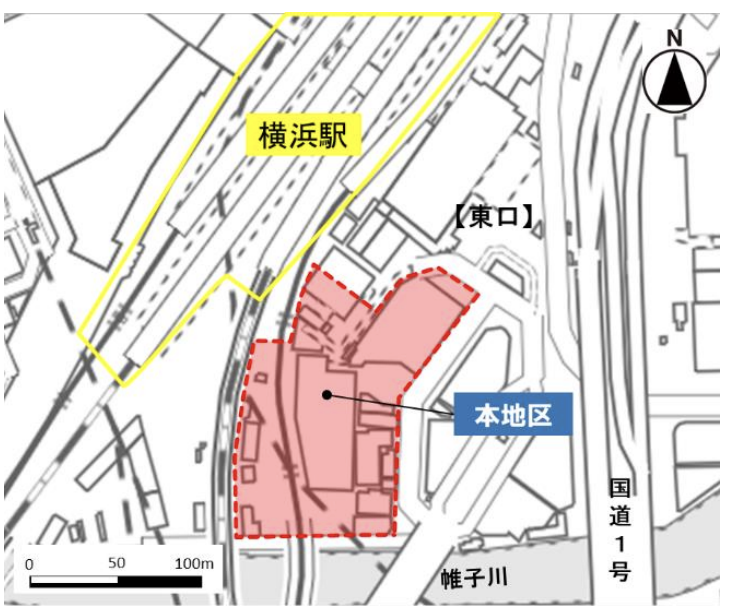Real estate appraisers are nationally certified under the Real Estate Appraisal Law, and their main job is to determine the economic value of real estate and express that value as a price. Real estate appraisers are specialists who calculate the appropriate value of real estate such as land and buildings, and are positioned as experts who can make fair judgments that take into account various factors such as the market economy and geographical conditions.
As of January 2024, there were 8,696 registered real estate appraisers and 1,187 assistant real estate appraisers. As of January 2024, there were 8,696 registered appraisers and 1,187 assistant appraisers.
Major Duties of a Real Estate Appraiser
The core of a real estate appraiser's work is "appraisal work," which determines the value of real estate. This work is the exclusive domain of real estate appraisers and cannot be performed by unqualified persons or persons who hold other qualifications.
Appraisal Services
Appraisal services include the following
- Public valuation services: Public valuations such as public land price announcements and prefectural land price surveys conducted by the national and local governments.
- Private valuation services: Appraisal services for sales and purchases, collateral valuation, inheritance, donation, and other private sector requests.
In these operations, real estate appraisers use the following three valuation methods to determine the value of real estate.
| Valuation Method | Outline | Main Applicable Subjects |
|---|---|---|
| Cost method | A method to determine the value by adjusting the replacement cost of the subject property for depreciation. | Real estate in general, including buildings |
| Transaction Case Comparison Method | Method to obtain price by comparing with similar transactions | Land, condominiums, etc. |
| Income Capitalization Method | Method to calculate the price by capitalizing the revenue obtained from the subject property | Rental buildings, apartments, etc. |
The real estate appraiser determines the final appraisal value by appropriately combining these methods.
Consulting Services
Utilizing our expertise in appraisal, we also provide the following consulting services
- Real estate utilization proposals: Advice on the most effective use of land and buildings
- Investment decision support: Analysis of the profitability of real estate investments and planning of investment strategies
- Business income/expenditure analysis: Business income/expenditure analysis of development projects and market research
Other Services
In recent years, the field of real estate appraisers has expanded to include the following areas
- Real estate securitization-related work: Valuation work related to real estate investment trusts such as J-REITs
- Overseas real estate valuation: Valuation of overseas real estate for global investment
- Market value accounting: Valuation of real estate holdings for corporate accounting
- Litigation-related work: Valuation work as a court appraiser
The Road to Becoming a Real Estate Appraiser
Outline of the real estate appraiser examination
To become a real estate appraiser, one must pass the real estate appraiser examination administered by the Ministry of Land, Infrastructure, Transport and Tourism and complete practical training. This examination is conducted in two stages: a short-answer type examination and a thesis type examination.
| Examination Category | Examination Subjects | Examination Duration |
|---|---|---|
| Short-Answer Type Examination | Administrative laws and regulations concerning real estate Theory of real estate appraisal |
2 hours each |
| Essay-type examination | Civil law Economics Accounting Theory of real estate appraisal (descriptive) |
2 hours each |
After passing the Short-Answer exam, the Short-Answer exam of the following year and the year after are exempted, and the Thesis exam can be taken directly.
Difficulty Level and Pass Rate
The real estate appraiser examination is considered one of the most difficult national qualifications, and the pass rate is known to be very low.
| Examination Category | Average Pass Rate |
|---|---|
| Short-Answer Type Examination | Approx. 33-36 |
| Essay-type examination | Approximately 14-17 |
| Final Pass Rate | Approximately 5-6%. |
Due to its high level of difficulty, it is generally said that 2,000 to 5,000 hours of study are required to pass the exam. Many students use support from vocational schools to prepare for the exam, and it is considered difficult to pass the exam by self-study.
Practical training system
After passing the essay-type examination, you are required to complete "practical training" in order to register as a real estate appraiser. The practical training can be selected from the following two courses.
| Course | Duration | Characteristics |
|---|---|---|
| 1 year course | 1 year | Short-term intensive |
| 2 Year Course | 2 years | Easy to manage with work |
The practical training includes lectures on real estate appraisal practice, basic exercises, and on-the-job training. Upon completion of the practical training, you can finally register as a real estate appraiser.
Income and Future Prospects of Real Estate Appraisers
Annual Income of Real Estate Appraisers
According to statistical data from the Ministry of Health, Labor and Welfare, the average annual salary for real estate appraisers is approximately 7.54 million yen, which is high compared to the average annual salary in Japan (approximately 4.6 million yen). It is also possible to increase annual income by further improving experience and expertise.
| Employment Type | Average annual salary | Remarks |
|---|---|---|
| Working real estate appraiser | Approx. 6.5-7.5 million yen | Varies depending on experience |
| Independent real estate appraiser | Approx. 8-15 million yen or more | Depends on the nature of the work and client base |
There are many real estate appraisers who earn more than 10 million yen per year depending on their expertise and client base, especially when they start their own business.
Future Prospects and Challenges
The following are some of the future prospects for real estate appraisers
-
Changes in the market: While traditional simple appraisal services are on the decline, new demands are emerging, such as real estate securitization and consulting services.
-
Increased work due to the aging of the population: Inheritance-related valuation demand is expected to increase with the aging of society.
-
Impact of technology: While AI technology and other developments may automate some of the simple valuation tasks, human experts will continue to be responsible for advanced tasks such as professional judgment, analysis, and consulting.
-
Responding to internationalization: As global investment increases, there is a growing need for real estate appraisers who are familiar with international valuation standards.
In light of the above, it is unlikely that real estate appraiser qualifications themselves will disappear, but there will continue to be a need for changes in the nature of the work and for increased specialization.
Starting Your Own Business as a Real Estate Appraiser
Requirements for Starting Your Own Business
To start your own business as a real estate appraiser, you need to prepare the following
- Qualification: Obtain a real estate appraiser license and register with the Ministry of Land, Infrastructure, Transport and Tourism.
- Practical experience: Generally, it is recommended to gain practical experience at an appraisal office.
- Opening procedures: Register as a real estate appraiser
- Office equipment: Secure an office and purchase necessary equipment such as a computer, printer, etc.
Success Points for Starting Your Own Business
The following points are important for success in starting an independent business.
- Establish sufficient personal connections: Establish personal connections with financial institutions, real estate companies, law firms, and other related industries that may request your services.
- Establishment of a specialty: Establishing a specialization in a particular field (e.g., commercial facility valuation, overseas real estate valuation, etc.)
- Sales and proposal skills: Ability to make proposals tailored to client needs in addition to appraisals
- Continuous study: updating the latest information on legal revisions and market trends
Initial costs for opening a business depend on the size and location of the office, but in some cases it is possible to open a business from about 1 million yen.
Real Estate Appraisal Standards
Real Estate Appraisal Standards are uniform standards that real estate appraisers rely on when appraising real estate. They are established by the Ministry of Land, Infrastructure, Transport and Tourism, and real estate appraisers conduct appraisals in accordance with these standards.
Major Principles of Appraisal
- Principle of Best Use: Valuation is based on the most effective use of the subject property.
- Principle of Substitutability: Valuation is based on comparisons with alternative properties.
- Principle of Balance: balance between revenues and expenses.
- Principle of compatibility: consider the property's compatibility with the surrounding environment
- Variability Principle: Considers the tendency of real estate prices to fluctuate.
Based on these principles, the final appraisal value is determined by appropriately combining the aforementioned "cost method," "case study comparison method," and "capitalization method.
Conclusion
Real estate appraisers are nationally licensed professionals who properly evaluate the economic value of real estate. Their main business is real estate appraisal, but they also provide consulting and other services. To become a licensed appraiser, one must pass a difficult examination and complete practical training, and because of the high level of difficulty, there are only about 9,000 licensed appraisers in Japan, making it a rare qualification.
The average annual income is relatively high at approximately 7.54 million yen, and further increase in income can be expected by starting your own business. In terms of future prospects, while being affected by changes in the real estate market and technological innovations, the need for advanced services such as professional judgment, analysis, and consulting is expected to continue in the future.
It is important for those who wish to become real estate appraisers to develop a long-term study plan and accumulate specialized knowledge and practical experience. In addition, even after obtaining your certification, you should continue to study and keep abreast of market trends in order to become a professional who can respond to the changing real estate market.
Frequently Asked Questions
Q1: Are there any qualifications to sit for the real estate appraiser examination?
A1: There are no qualifications for the real estate appraiser examination, and anyone can take the exam regardless of age or educational background. In 2006, the qualifications were abolished, and anyone can take the exam as long as they pay the exam fee.
Q2: Is there a minimum number of years of work experience required to become an independent real estate appraiser?
A2: Although there is no legal requirement regarding the number of years of work experience, it is generally recommended to have at least three to five years of work experience in order to build up practical knowledge and a client base.
Q3: Is there a possibility that real estate appraisers will be replaced by AI in the future?
A3: Some simple valuation tasks may be streamlined by AI technology. However, the final value judgment of real estate and advanced consulting require comprehensive judgment of market characteristics, legal systems, and individual circumstances, and will remain the domain of human experts for the time being.
Q4: What is the difference between a real estate appraiser and a real estate transaction specialist (宅地建物取引士)?
A4: A real estate appraiser evaluates and determines the value of real estate, whereas a real estate transaction specialist is qualified to perform services related to real estate transaction brokerage. There is a big difference in exam difficulty, scope of work, average annual salary, etc. The real estate appraiser is more specialized and has a higher degree of difficulty.
Q5: If I pass the short answer exam, how long can I take the essay exam?
A5: Once you pass the Short-Answer exam, you are exempted from taking the Short-Answer exam for a total of three years from the current year, the following year, and the year after that, and can take the Paper exam. In other words, you must pass the essay exam within 3 years of passing the short answer exam.
Please consult with a real estate appraiser if you want to know the appropriate price for real estate transactions, inheritance, collateral valuation, etc. A real estate appraiser is a specialist who determines the economic value of land and buildings from an impartial and neutral standpoint. Please feel free to contact us.

Daisuke Inazawa
Representative Director of INA&Associates Inc. Based in Osaka, Tokyo, and Kanagawa, he is engaged in real estate sales, leasing, and management. He provides services based on his extensive experience in the real estate industry. Based on the philosophy that “human resources are a company's most important asset,” he places great importance on human resource development. He continues to take on the challenge of creating sustainable corporate value.

.png)













